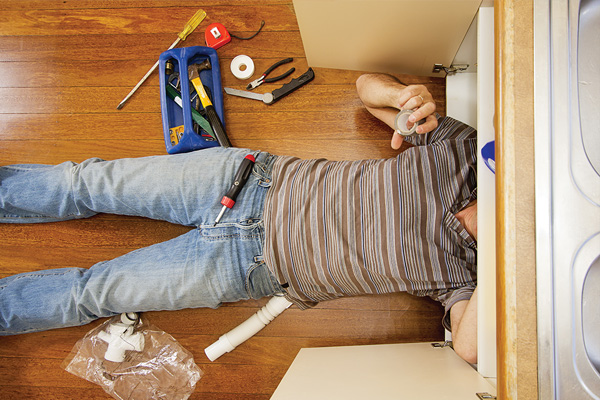Homebuyers: Write all the love letters you want to sellers, to try to persuade them you’re the right buyer for their home. But leave your heart-wrenching missive out of the package of documents to give to your lender.
That’s the word from Rob Spinosa, a loan adviser with Supreme Lending in Mill Valley, California, who says some letters contain not-so-flattering information about the house that you probably don’t want underwriters to know. Such as these three examples:
- “The repairs in the downstairs kitchen don’t concern us. John is good with his hands, and we plan to fix this upon moving in.”
- “We realize that the home has some deferred maintenance, but we find it charming and are ready for the challenge.”
- “The termite damage in the report is trivial, in our opinion … we still love the house!”
Spinosa says he has nothing against love letters per se. He and his wife wrote one themselves when they made an offer on a home. But he and his colleagues remove them from the loan package when they notice them.
Still, he says, “it only takes one oversight from me or anyone on my team before a love letter that may say something (like the above) finds its way in front of an underwriter.”
Lending is not like it used to be, when any applicant who could fog a mirror could get a mortgage. Today, it’s full-bore, full-documentation underwriting. And as Spinosa cautions, “what’s been seen cannot be unseen.”
So go ahead and woo your seller, just don’t let the lender in on the love-fest. Otherwise, you could get the equivalent of a Dear John letter from the lender – one that says something like, “We’ve found another borrower to love.”
** ** **
“Alexa, make my mortgage payment.”
Yes, Quicken Loans, the nation’s largest online lender, has developed technology that allows its clients to ask Amazon’s Alexa to make a monthly payment by a secure voice command.
By asking Alexa, clients also can review nearly all account details, such as their current loan balance and payment due dates, and listen to Alexa deliver current interest rates for all of Quicken’s mortgage programs.
** ** **
Folks who are moving often hold garage sales to get rid of their unwanted stuff. But after that, they’re usually in a quandary: What do we do with the rest of the things we no longer want or need?
Often, there are people in town who will haul away your leftovers for free, or for a small stipend. Typically, these are professional dealers who will comb through what they take away to find a hidden gem or two that is worth more than you ever realized.
Likely, many local charities would be glad to help. As one example, A Wider Circle in the Washington, DC, area, collects furniture and household items and gives them to families and individuals transitioning from homelessness.
There also are many national charities you could call, including Goodwill, the Salvation Army, the Purple Heart Foundation and Habitat for Humanity, which backs locally owned and operated ReStores.
Here are a few other options:
Working through Vietnam Veterans of America (VVA), Pickup Please (pickupplease.org) helps all veterans by taking almost everything you want to give away. The group will collect your donations within 24 hours of your call; all you have to do is bag or box your items and leave them at the curb. If requested, they’ll leave a tax receipt. Collected items are sold to private companies, with the proceeds used to support VVA’s local, state and national programs. (All veterans are served, not just those from the Vietnam era.)
Dress for Success (dressforsuccess.org) passes on new and gently used business clothing to women looking for a new start in the workforce. It looks for business-appropriate attire such as suits, shoes, handbags and unused cosmetics and jewelry. Local affiliates accept donations only once or twice a month, so do your research.
Cell Phones for Soldiers (cellphonesforsoldiers.com) collects used phones and tablets, sells then to a refurbisher or recycler, and uses the proceeds to purchase prepaid calling cards. The cards are distributed to active-duty personnel and veterans.
Lew Sichelman has been covering real estate for more than 30 years. He is a regular contributor to numerous shelter magazines and housing and housing-finance industry publications. Readers can contact him at lsichelman@aol.com.

